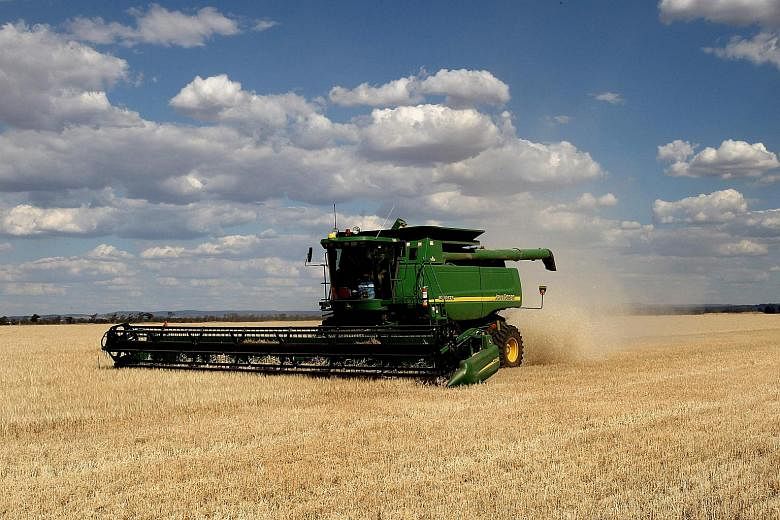Australia is set to block the A$371 million (S$380 million) sale of the country's biggest private landholding to a Chinese consortium amid growing concerns about the sale of farmland to foreign investors.
With a federal election due to be called within weeks, Treasurer Scott Morrison said yesterday that his preliminary assessment was that he would block the sale of the famous S. Kidman & Co, an Australian company whose pastoral leases cover more than 1 per cent of the nation's landmass.
It is the second time in less than six months that Chinese firms have been barred from buying the 117-year-old company - one of the country's largest beef producers with a herd of 185,000 cattle.
Mr Morrison said he believed the sale to the Chinese-led Dakang Australia Holdings was not in the national interest. He suggested that Kidman was not affordable to Australian firms but could still be sold locally if the vast estate was broken into smaller parcels of land.
"Australia welcomes foreign investment," he told reporters. "However, we must be confident that this investment is not contrary to the national interest… The size of the asset makes it difficult for any single Australian group to acquire the entire operation."
- Aussie giant
-
Here's why S. Kidman & Co is so important to Australia:
•It was founded in 1899 by Sir Sidney Kidman, also known as the "Cattle King".
•The company is Australia's largest private landowner, with about 1.3 per cent of the nation's total land area and 2.5 per cent of its agricultural land.
•It is one of Australia's largest beef producers, with a herd of 185,000 cattle. •It is a key source of beef for export to Japan, the United States and South-east Asia.
The move comes ahead of an election expected in early July - and prompted critics to accuse the government of blocking the sale for political reasons.
Mr Sam Trethewey, director of the Future Farmers Network, a non-governmental organisation that supports the farming sector, questioned whether the decision was a xenophobic ploy to secure votes.
"Is this about appeasing the xenophobic, dark side of many Australians and clinging to polls?" he said in a tweet.
The ruling coalition's junior partner, the rural-based National Party, welcomed the decision. Party leader Barnaby Joyce told the Australian Financial Review yesterday that the decision "shows our nation has the capacity to say yes - and often does - to foreign investment, but is also prepared to say no."
The sale was blocked last November over concerns that the estate was too close to a sensitive weapons testing area at Woomera. Kidman then agreed to alter the deal to exclude the sensitively located territory.
Kidman managing director Greg Campbell said he was "disappointed and deflated" by the decision. "The Australian buyers didn't come anywhere near the pricing of the foreign parties," he told ABC News.
Kidman's 101,000-sq-km assortment of 10 cattle stations covers about 2.5 per cent of Australia's agricultural land.The Dakang consortium, which involves a partnership with a 20 per cent Australian investor, has been given until May 3 to respond to the announcement.
Mr Hong Tao, chief investment officer of Shanghai Pengxin Group, which controls Dakang, admitted last week that the sale of such a large estate would not be permitted in China. "It is unimaginable in China that you could own over 100,000 sq km of land," he told the Australian Financial Review.

